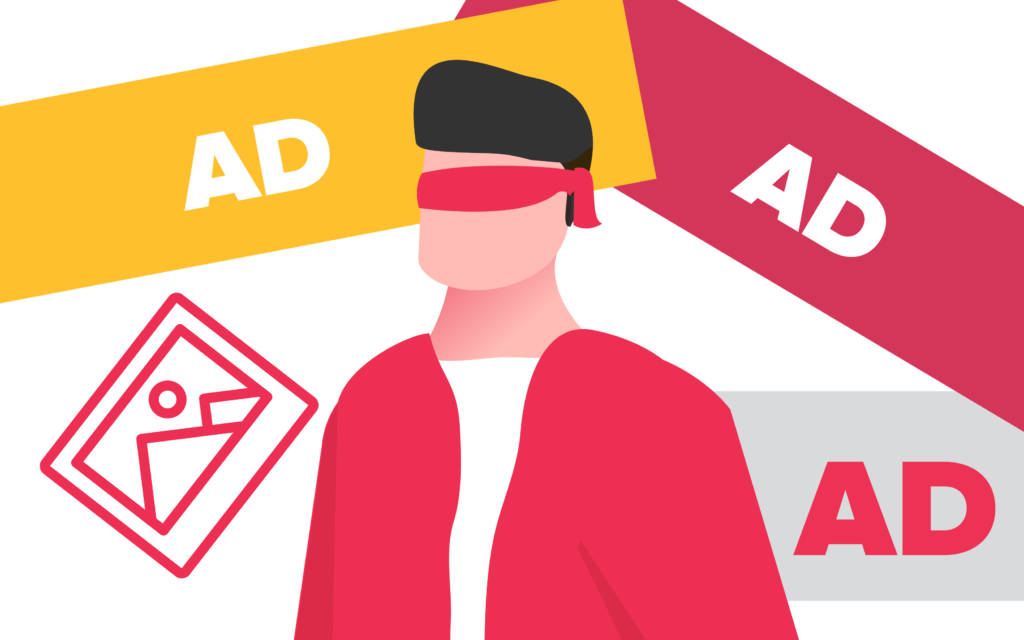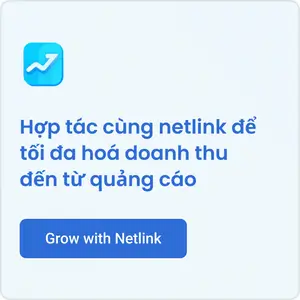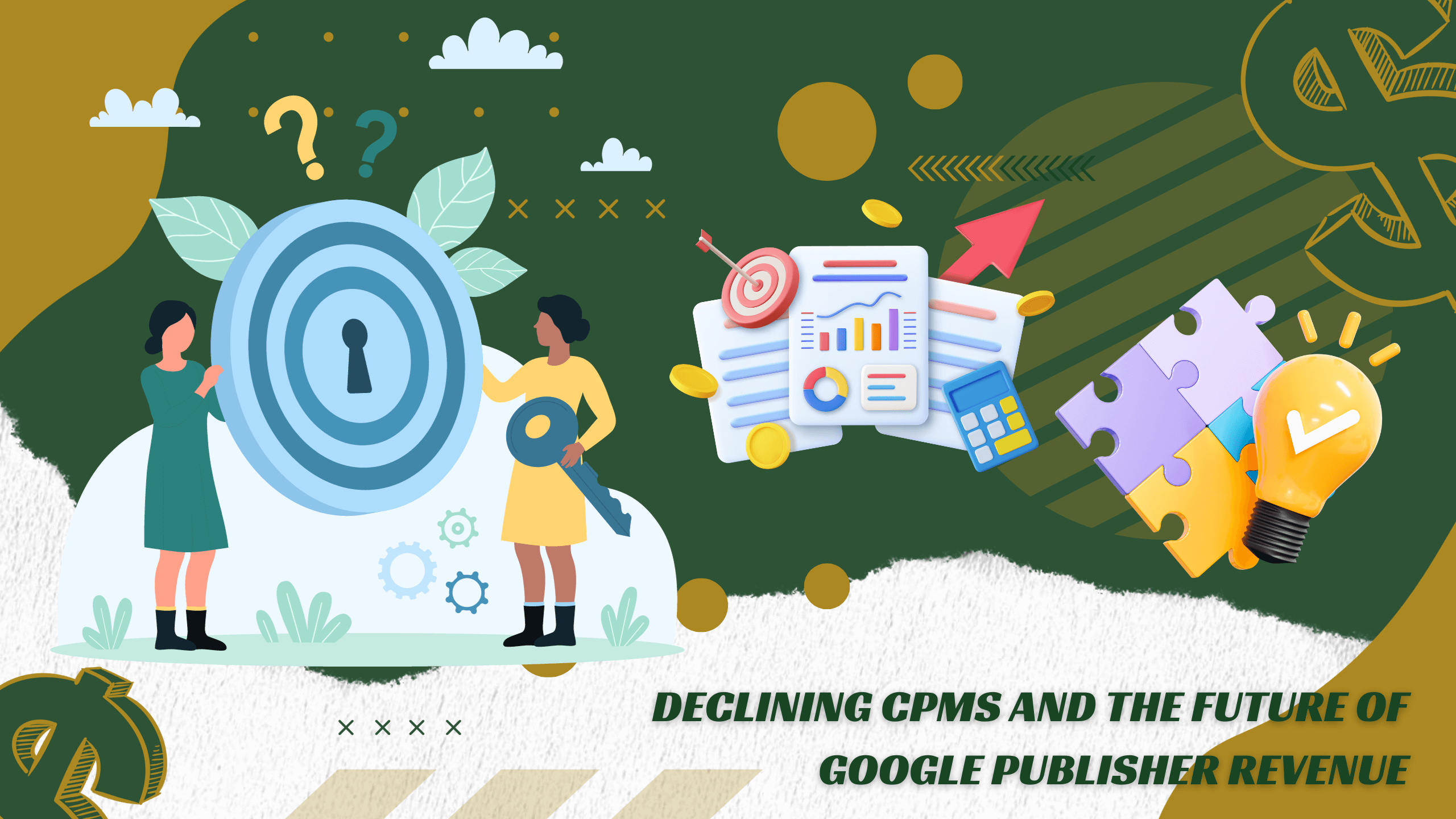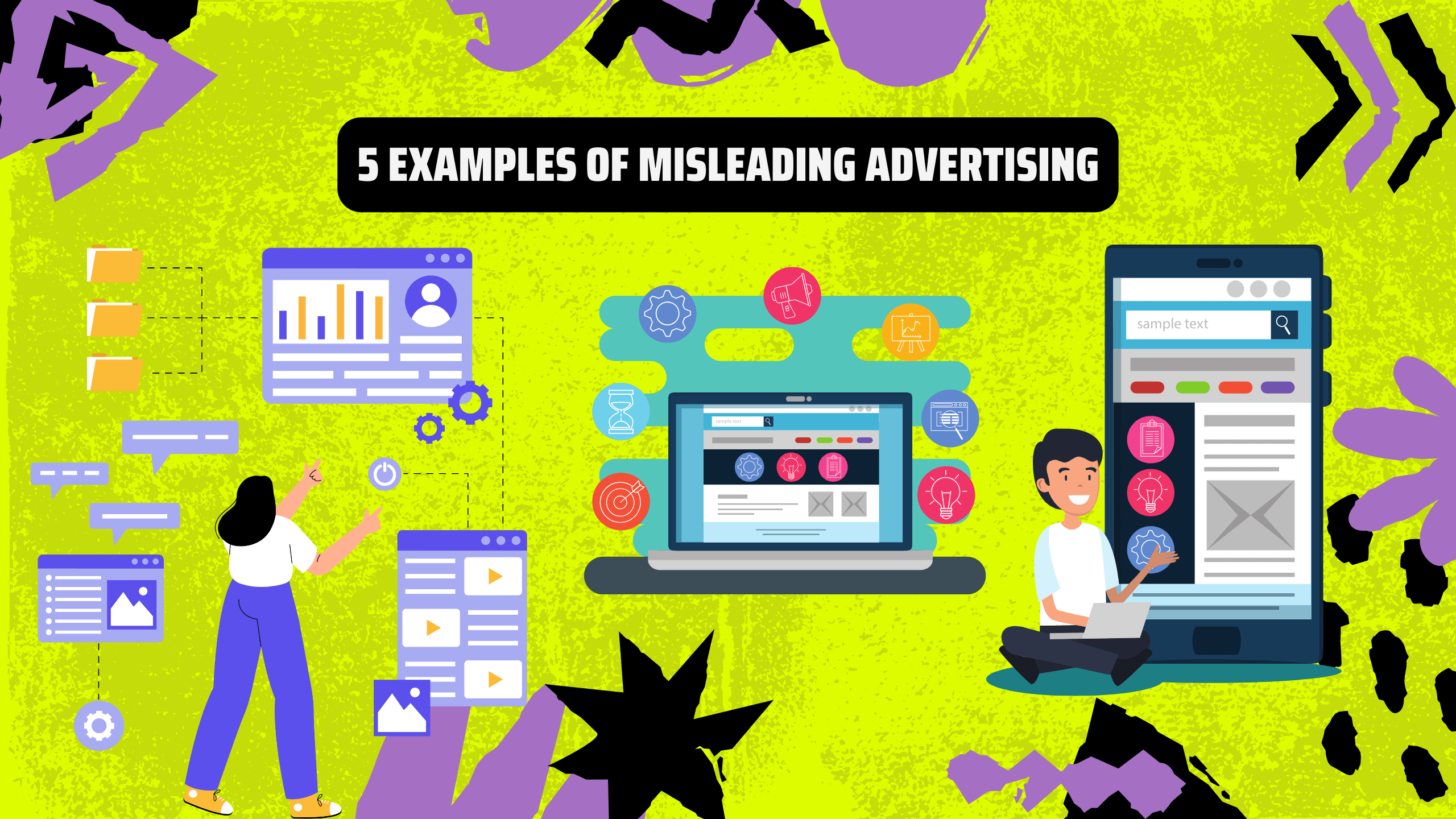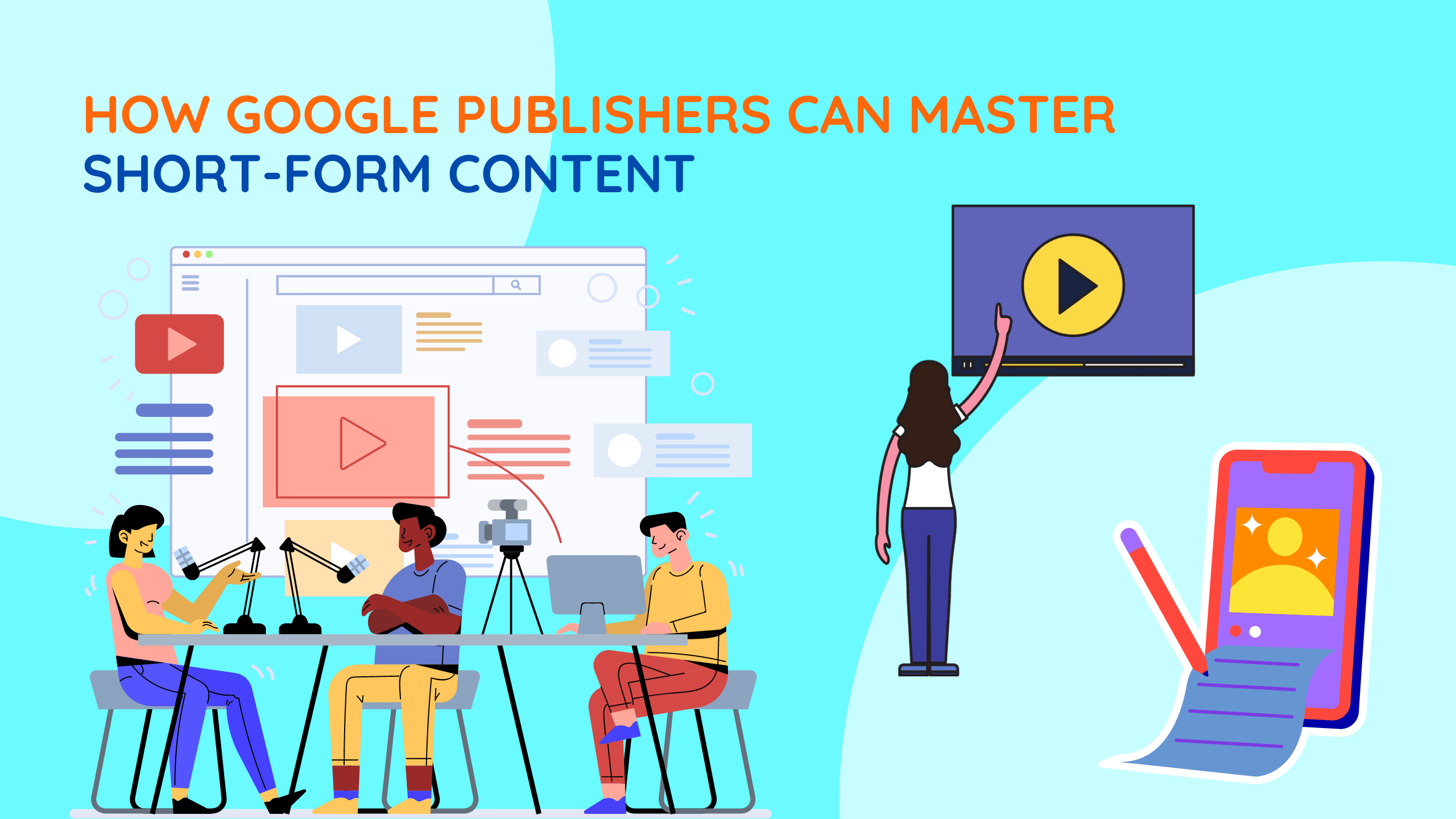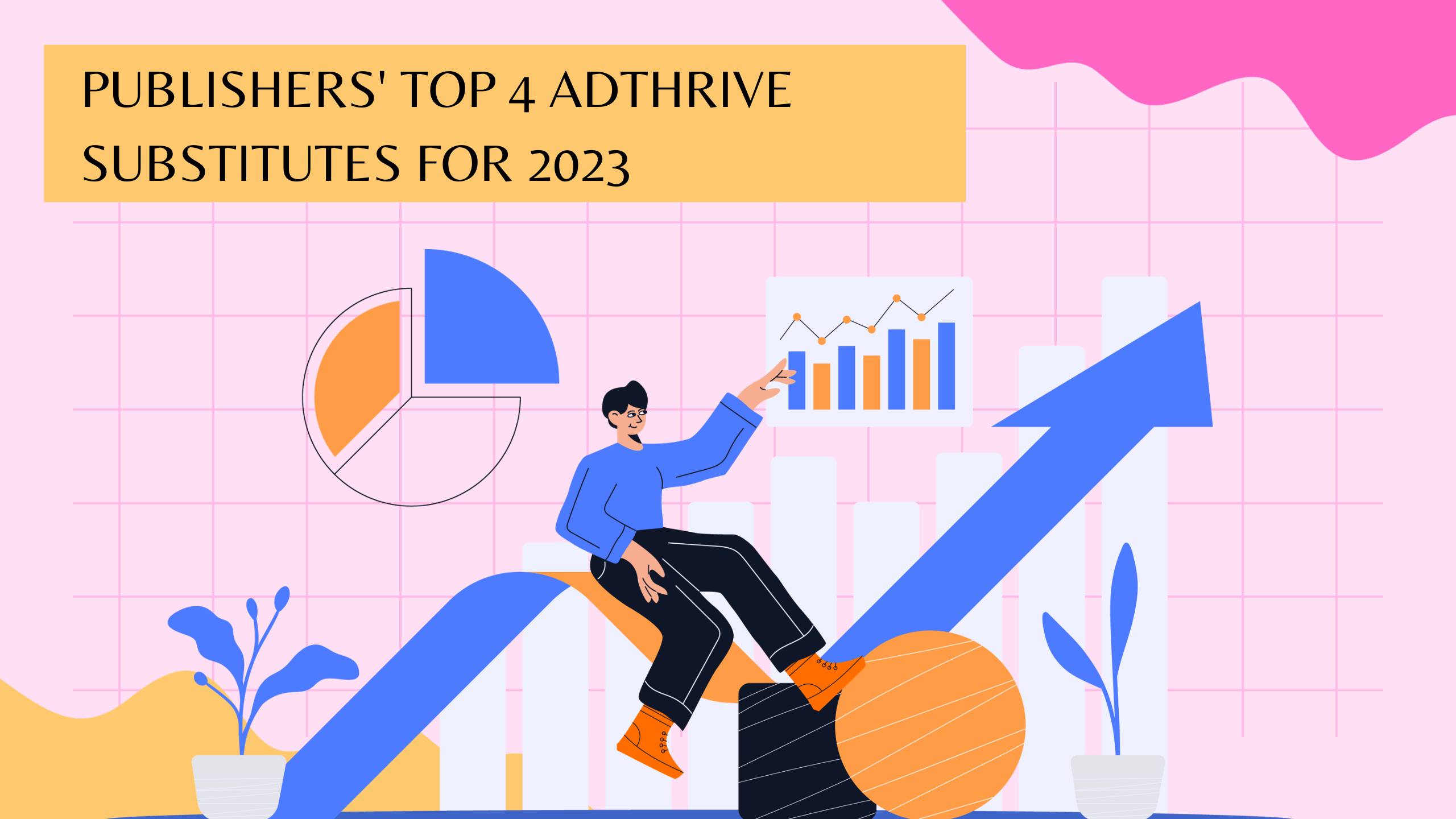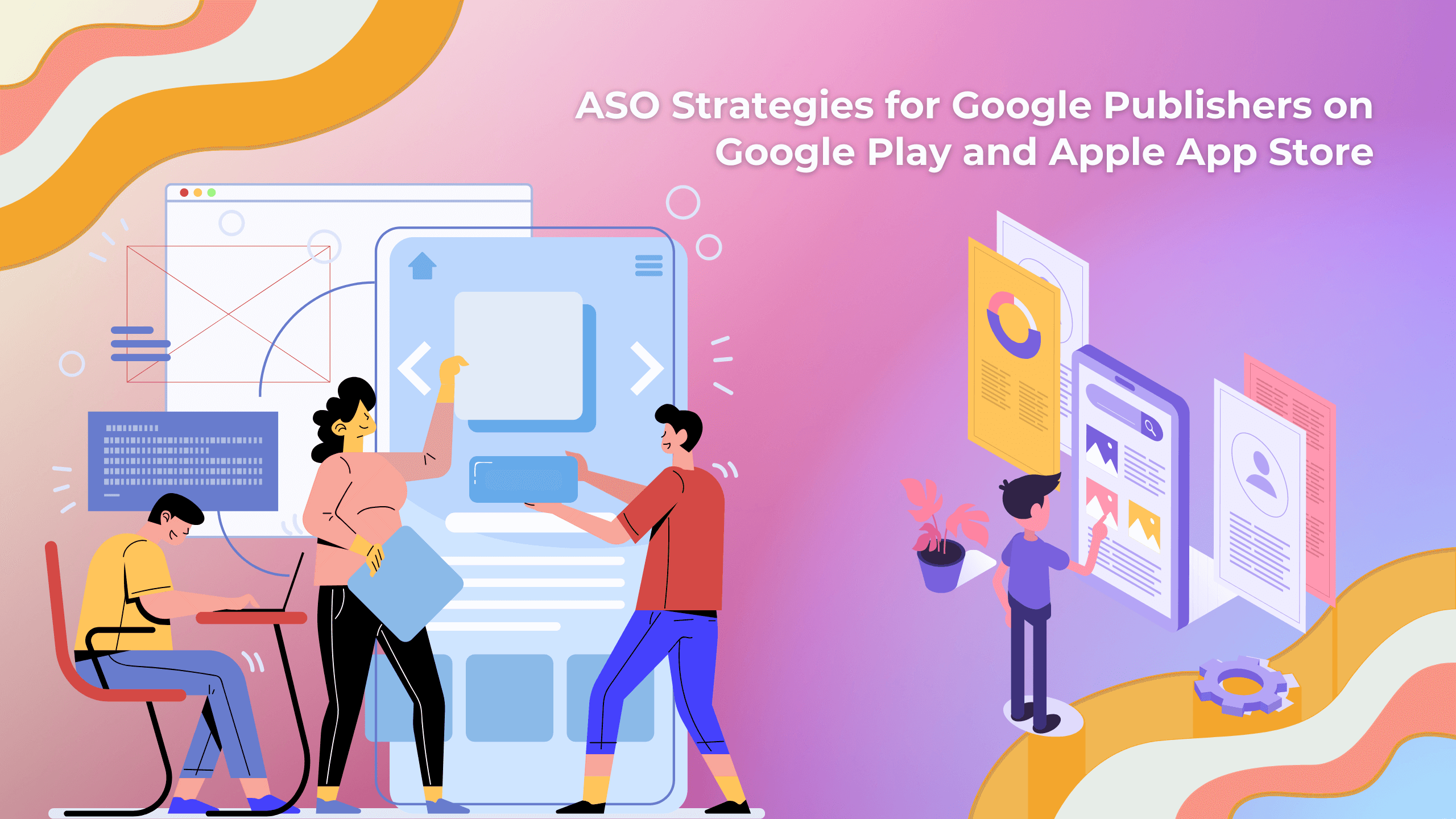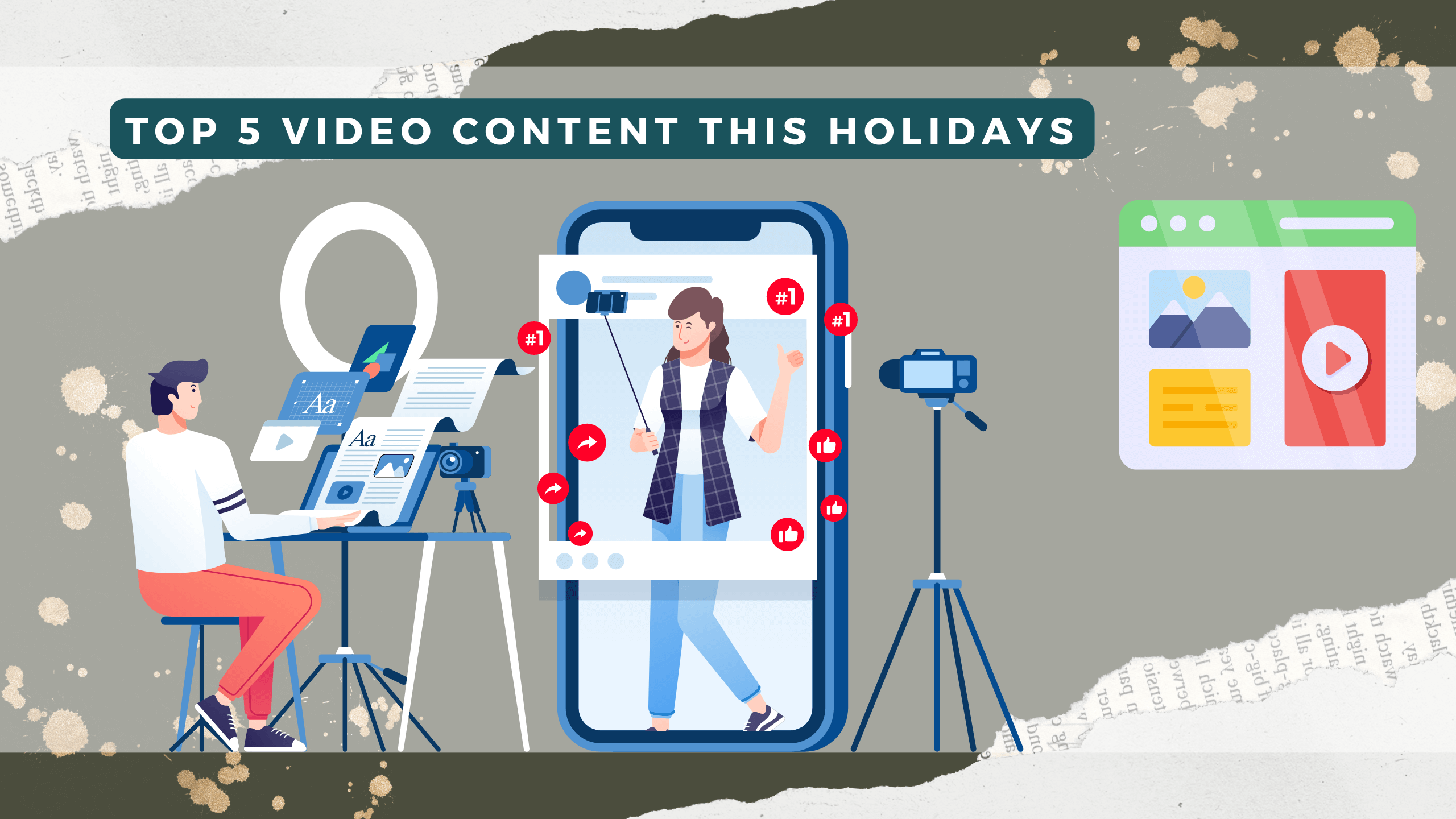What is Ad Blindness?
Human beings possess a natural ability to filter out any unnecessary information while retaining and processing valuable information. Ad blindness is a behavior exhibited by web users, wherein they unconsciously or intentionally become blind to and unaware of the visual elements that signify online advertisements. Ad blindness occurs when users selectively focus their attention on the content that interests them.
The layout of a webpage is often organized in a similar manner, and users know where to locate specific elements on the page. For instance, a company logo is typically found in the top left corner, while navigation menus might be located on the left sidebar or across the top.

Users tend to predict which page elements are worth viewing based on past experiences with certain patterns and types of websites. The size and shape of each page element often signal to users whether the element is something they want to see. Users have learned to direct their attention to the valuable page elements that help them achieve their goals, while remaining unaware of irrelevant elements on the page.
What Content Elements Signal an Advertisement on a Webpage?
Visual content resembling advertisement formats, such as specific-sized images (300 × 250), GIFs or animations, or images with calls to action.
Dedicated page space for advertisements, such as ads often being placed on the right sidebar or within the banner of the page.

Several eye-tracking studies have shown that users today have trained their eyes to ignore design elements on a page that indicate advertisements. This is particularly true for mobile users.
So, how does Ad Blindness affect publishers and why should they care?
Many publishers believe that because of Ad Blindness causing users to overlook ads, it primarily impacts advertisers, and there’s not much they can do about it. However, this assumption is not entirely accurate, as Ad Blindness also affects publishers.

Those paid based on CPC or interaction rates will feel the impact the most, as it leads to fewer clicks and lower revenue. Publishers earning revenue based on CPM are affected too, as advertisers are less willing to pay for ads with lower interaction rates.
The key to combating Ad Blindness and potentially improving your ad revenue is capturing user attention and engagement with ads on your website without sacrificing user experience.
According to Adotas, 86% of online users suffer from ad blindness..
What Can Publishers Do About Ad Blindness?
1. Target Your Ads to Your Audience
Relevance of ads directly impacts interaction levels and profitability, as users are more receptive to personalized ads. Publishers should consider implementing real-time bidding to deliver highly targeted ads.

2. Continuously Test Ad Placement Locations
Effectively regaining user attention with your ads involves changing ad positions and sizes. This is because users become accustomed to the typical layout of a webpage over time. Experiment with different ad placements to determine the most effective layout.

3. Invest in More Engaging Ad Formats
Unique and creative ad formats are a surefire way to capture user interest. An option for this is video ads, which often bring much higher CPM compared to traditional display ads due to their interactive and engaging nature.

4. Prioritize Quality Over Quantity
Ad impersonation and low-quality content are root causes of Ad Blindness. This is because users react negatively when bombarded with irrelevant ads that provide little value. Be more selective about which ads appear on your website. This will enhance the user experience and make your ad space more valuable, resulting in higher CPM in the long run.

Hopefully, the suggestions above have provided you with a better understanding and sparked some ideas for optimizing your website or app. Don’t miss the opportunity to receive direct advice from experienced experts in the field of online advertising at Netlink. Leave your contact information below, and we will reach out to you soon.
Mọi thông tin liên hệ về hợp tác, vui lòng gửi vào email: [email protected]

